Art won’t save us…but weaving might!
Art curmudgeonry, connection, braided puns, and happy September!
Hello vibrant humans,
I have two ideas, can I braid them together with thematic conviction? Let’s see.
It often surprises people, but I’m a very reluctant affirmative on art’s power to move folks to action. Sarah, you heathen! Indeed, I believe in the power of art, but not in THE POWER OF ART, if that makes any sense. I know that art permeates us, and inspires thought, which can catalyze change, but I also believe that we give art too much credit, or at least think everything will be a ‘Sharkwater’ or ‘one other piece of art that changed everything forever, which I cannot even think of.’ We hype the modest lift of the film Don’t Look Up, looking for justification and hoping for meteoric impact.
So I prefer to put less pressure on art, and focus on its importance largely in the realm of art for art’s sake — creating art gives us life, and that energy helps us change the world. AND, making art about the climate crisis helps make it normative. If that art also moves others to take action, well, what a joyful bonus. Picasso is rolling in his grave. That would be a cool piece of art.
Despite, or because of, my cynic-with-a-BFA energy, I love Wendy MacNaughton’s current series, Make Art During Fascism. She writes: Today we’re launching a three-part series on fighting tyranny with creativity. Authoritarians want compliance. Not creativity. So let’s double down on making, and do it together. I love this because each of these things are wonderful unto themselves: non-compliance, creativity, making, and making together.
I’d been thinking about what it means to make art as the fascism fahrenheit ticks up. My annual August trip to Balkan music camp in New York is a chance to modestly improve my Bulgarian folk dancing skills, but it’s also an opportunity to not read the news for a week. It’s a pulse check, too, as I ask all my friends, who come from across the US, my nosiest questions about the state of their democratic lives, and measure them against years past. This year, I tried, with greater strength and success, to ignore the news alerts, and to just be. To make art, even terrible art, with friends new and old. And I heard variations on this theme from other pals there, too: let’s just play music for a week. Not because these friends aren’t actively fighting baddies in their day-to-day, but because art is a balm, and a rejection of oppression unto itself, and sometimes you just want to hang out in a deprivation chamber with it.
We were of course not making art about climate change in any literal sense. But we were making things, and making things together. Which is a clumsy segue to a word I’ve heard a lot lately that I love, and that I think very beautifully articulates the role of the maker in today’s tyrannical times. The word of the day is Weaving. I first heard it used in this context last year, when I discovered David Brooks’ wonderful Weave: The Social Fabric Project, What’s it all about? Designed as a countermeasure to polarization and loneliness, Weave is an org that helps people forge connection in community. They write:
In communities throughout the country, in ways big and small, people are showing up for each other and building connection and trust. You probably know some of them. They are the people neighbors count on. They value everyone no matter our differences, make us feel we belong, and act to bring people together to address shared needs. We call them weavers. You may be one of them.
At the climate retreat I was at last month, at least six different individuals used the word weaving as a descriptor for the work they do, be it in their local community, or as global change agents. In a broken world, repair and connectivity feel like naturally occurring metaphors. (Or maybe we all just made too many of those woven potholders as kids.) But it’s intriguing that this word is everywhere, and that you can’t call it up in your brain without visualizing it as a soft and beautiful art. Or maybe you can? I dare ya.
In MacNaughton’s newsletter she features this passage from Beth Pickens, author of Making Art During Fascism:
Anytime you start to feel overwhelmed by humanity’s impact on people, animals, and the planet, anytime you see the awful, smug faces of fascist leaders, anytime you think you cannot leave the house because the world is too hard, I want you to think about the art, performance, music, books, and films that have made you want to be alive. Think of how those artists, like you, probably felt overwhelmed by their life and times but they made the thing anyway. Your future audiences need your work and you need to make it.
I love all of this except the last line, because you don’t need an audience to need your work in order to make art. When I picture weaving, it’s not just the dexterous handiwork of baskets and proto-hipster wall art, it’s also the dances of people flowing in and out of spaces, creating webs of connectivity and community. At Balkan camp, the weaving is literal — people are holding hands, dancing, and singing, as they snake through each other. What I like about this metaphor is that it’s not about an audience — because sometimes there is no audience, as so many people are dancing together that only a few heads are left to spectate, bemusedly, while sipping a Zywiec. The point: we can make art for power, peace, and presence.
And the definition of that art can be broad. Bringing two people together feels like art to me. It’s why I strive (and fail miserably) to be a matchmaker. But it’s such a delight to connect people and ideas, and to watch as bonds form, leading, in turn, to new ones. Somehow this feels less like creative ownership and more like collaboration, which may be why so many of the generous souls I met at the Women in Climate Leadership retreat used this particular word. Weaving requires disparate entities coming together. And it can be hard, like my daughter trying to braid my exceptionally unruly hair. But each weave makes the subsequent weaves easier, because the shape of the basket or community organization itself gains strength, allowing that many more people to find support in it.
My mantra used to be “grieve, breathe, seize,” but I’m thinking of changing it to “grieve, breathe, weave.” Or perhaps, Leave it to weaver. I will stop now.
My cousin Shi Shi says these emails can be something of a chore (not in sooo many words, she’s the loveliest) — so I’ve endeavoured to keep this one short and devoid of footnotes and esoterica. Let me know if you like a source and a quote, or prefer a shorter note!
THIS PLANET
What are you weaving? Let me know!
LAST PLANET: Hope, strategy, F1
Beautiful thoughts from wonderful writer and thinker Ella S.:
I resonate in particular with the way that you've described the complex feelings both within and between dreadful despair & bountiful hope, and how amidst it all we can find motivation towards collective climate action.
Coincidentally, I was just talking about the quote "hope is not a strategy" last week...At a Climate Justice Ottawa meeting, Mi'kma'ki warrior Sakej Ward shared that exact quotation in reference to strategic organizing against capitalist empire. Ironically enough that quote was also my Business of Advertising prof's favourite bonus question on exams and a go-to catchphrase. It's funny how these things can come up in all kinds of places and contexts.
The Bill McKibben article you shared (and HEATED's interview with him) have left me feeling excited about the action that's inevitably taking place as solar and renewable energy becomes more affordable & accessible. After the David Suzuki 'It's too late' piece, it's good to see things like that, alongside this amazing news from The Narwhal about $300million in federal funding towards Indigenous conservation of 390,000 km2 in the North West Territories.
Snippets on messaging, climate comms news, etc…
The Rallying Cry
I joke about the phrase Let’s Go a lot, and this week it sorta dawned on me that Let’s Go is just the sporty Yeppa or Opa. My sharp former colleague Britney shared the definition of Yeppa after she went to the eponymous restaurant in Atlanta.
Yeppa YEP•PA
A verbal expression that collects an existential vision: the ability to live with passion and intensity every day, seeking and accomplishing highly gratifying moments. It’s the word that springs from your lips when you realize you’re living this way — that feeling of excitement.
It’s not dissimilar to Opa, which sends a shiver through my spine when our 80-person strong Albanian ensemble shouts it out together. At a progressive hang in Montreal a few years ago, the youngs were uttering the word relatable and snapping their fingers enthusiastically when they agreed with the speaker. Whatever your favourite exhortation, find people you can shout it with, loud and often?
Being alive now.
Wow what a comment! Love this from James Boyle on a post by Tzeporah Berman. It pulls together lots of wisdom from so many people to more articulately convey my Eric Holthaus-borrowed mantra, you are alive at just the right moment to change everything.:
It’s a privilege to be alive and to be healthy and vitally is an incalculable blessing for those who currently possess both. Confronting the always scaling and always more urgent existential emergency of human-caused climate and environmental breakdown is no bed of roses. But as Oliver Wendell Holmes (a thrice wounded Civil War vet and brilliant Supreme Court Justice) recognized: “repose is not the destiny of man.” Those of us not currently living with the fascist boot to our throat as are our brothers and sisters in China and Russia and many other places, should do what we can for our full freedom. Not as consumers but as citizens, builders, parents, partners and friends. We will all always be increasingly tested. Perhaps the best advice I’ve heard for what is coming more fully every day came from an indigenous leader: our ancestors honor us by having us here in this most decisive moment. Absolutely nothing stands between most of us and unprecedented collaborations for creative, catalytic and scaling breakthroughs building on each other. Let’s see what together we can do, again and again. Until our breath passes from us. As I heard Paul Hawken once say: “if a history of this time is written, it will be a history of heroes.”
Motherf**king Wind Farms!
I shared some thoughts with the smart folks at Launch Squad about why the Samuel L. Jackson windfarm ad was such a miss, and they pull in lots of great stuff from smarter souls, but for the TL;DR:
Don’t repeat the myth, and don’t nod to a vague anonymous entity as the source of said myth. And certainly don’t do that in the first 10 seconds of a spot, given that most people only watch the first 3 seconds.
Don’t whiff the ball on a clear, dazzling, and sticky summation of the value of wind.
Don’t overcomplicate. IE don’t make up a fake product (seaweed snacks) when you have but :30 with sweary Samuel Jackson to convey to the world that wind power is effing awesome. Most people don’t know what a GHG is. People are busy, make it easy.
DO try cool things! This is a miss, but at the same time, I’m ALWAYS HAPPY WHEN ANYONE TRIES ANYTHING OUTSIDE THE BOX, so…yeppa!
STUFF
I’m coming to Climate Week NYC for a very short minute Will you be there? Let me know!
Toronto’s first-ever climate week is coming! And the wonderful Allison Daisley has packed a whole morning full of climate comms goodness. Save the date: Friday, October 3rd, at The Weeknd’s fave library branch. More soon.
A matter of degrees. This is a terrific podcast by my pals Katherine and Leah. Though this latest ep is about taking advantage of the tax credits before it’s too late in the US, it’s a really good climate comms listen for anyone who wants to properly message why one should go electric. So well done!
Dem social strategy, served: Liz Spiers absolutely nails why the democratic media is failing. Political people, not comms people, trying to run and reign in media strategy. A must read if you make media, or, like, want to help save democracy!
Planetary plastic bummers: Once again, the global plastics treaty negotiations collapsed. It’s a bummer wrapped in PVC, because this is a solvable issue that would have immediate impact on climate, our oceans, our brains. But, we can and must keep pushing. Motivating words from Environmental Defence!
The gater abater! Or, WINNING! In a sea of retrenchment, I’ve been buoyed by some unexpected wins of late, like Alligator Alcatraz. Thank you, Heather M, for sharing this great Atmos piece by Monica Uszerowicz about the court-ordered pause on the detention center, thanks to the hard work of the Miccosukee and Betty Osceola, Friends of the Everglades, the Center for Biological Diversity, Earthjustice, and so many others. Beautiful writing and the photos are great, too:
There is something sacred in the Everglades: Its cathedral quiet, its long-blessed soil, its indelible mark on the state and shape of Florida itself. That sacredness has stood in direct opposition to the brutality of Alligator Alcatraz, a facility that, during its existence, has harmed innocent people, torn families apart, and scarred the land. Its court-ordered shutdown is both a reprieve and a reminder: the Everglades has long protected those who honor it, and advocates say it’s time policymakers do the same.
Winning, part deux: Somehow, the bike lanes persevered here in Toronto!
Mending magic! Thanks to everyone who came to mend and chill. We fixed onesies, summer dresses, vintage fast fashion, and made new connections as we repaired old clothes!
Saul Griffith has a new substack, and it’s called Energy and Stuff, and it’s great, even though I want him to call it Energy and Stuff and Things.
Thank you!
→ Thank you new subscribers! Welcome welcome. Check out my about page for more frills and ruffles.
→ I will never not love you tapping the 💚 below when you like an edition of this ‘sletter, or sending me a note with suggestions and ideas for how to improve it.
→ You can always help me juice the algo by sharing this newsletter with people you (hopefully) like, recommending it on your own Substack or hiiv or what have you, or upgrading your subscription.
Hope you are taking good care,
Sarah
People dancing
(or dueting with the birds).


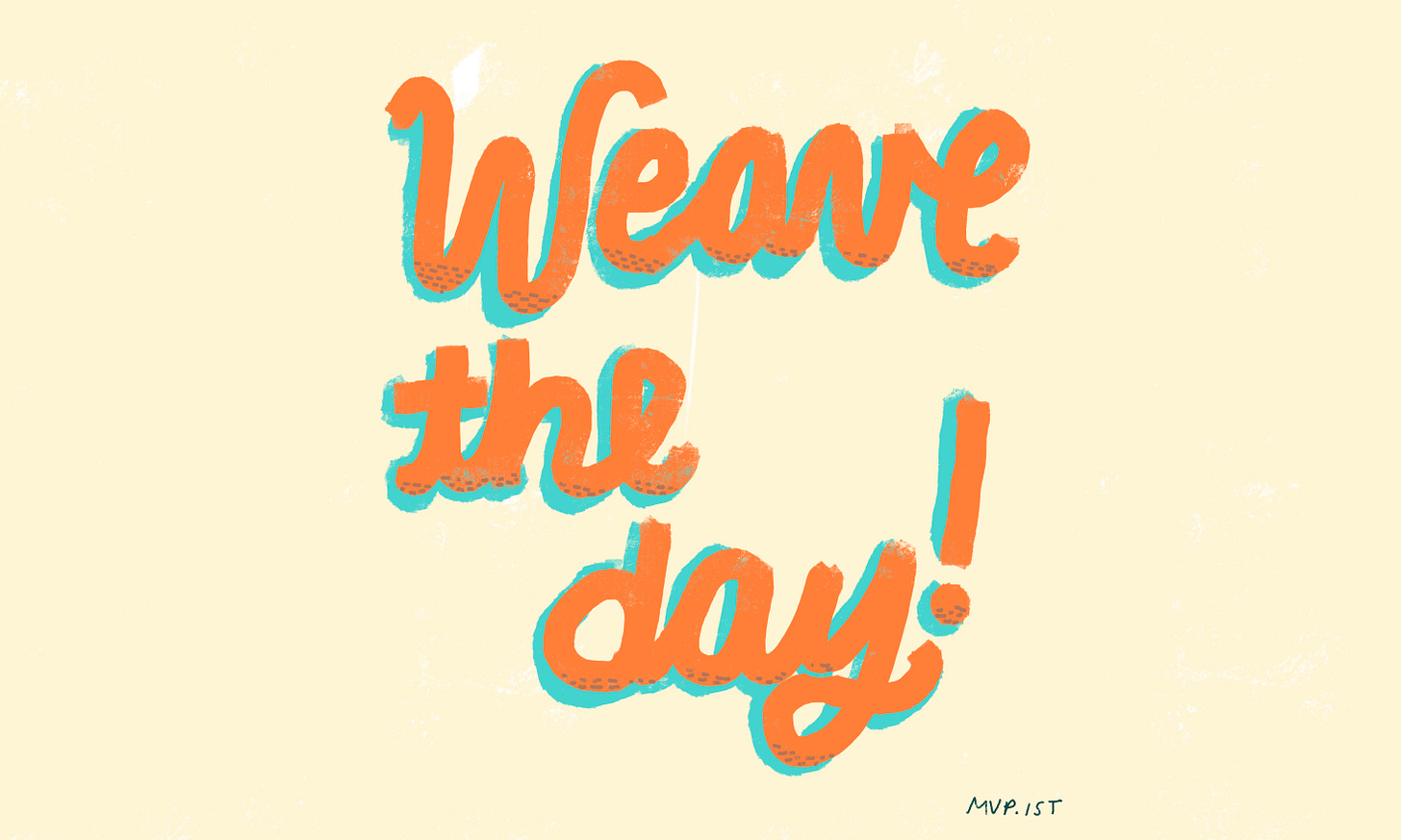
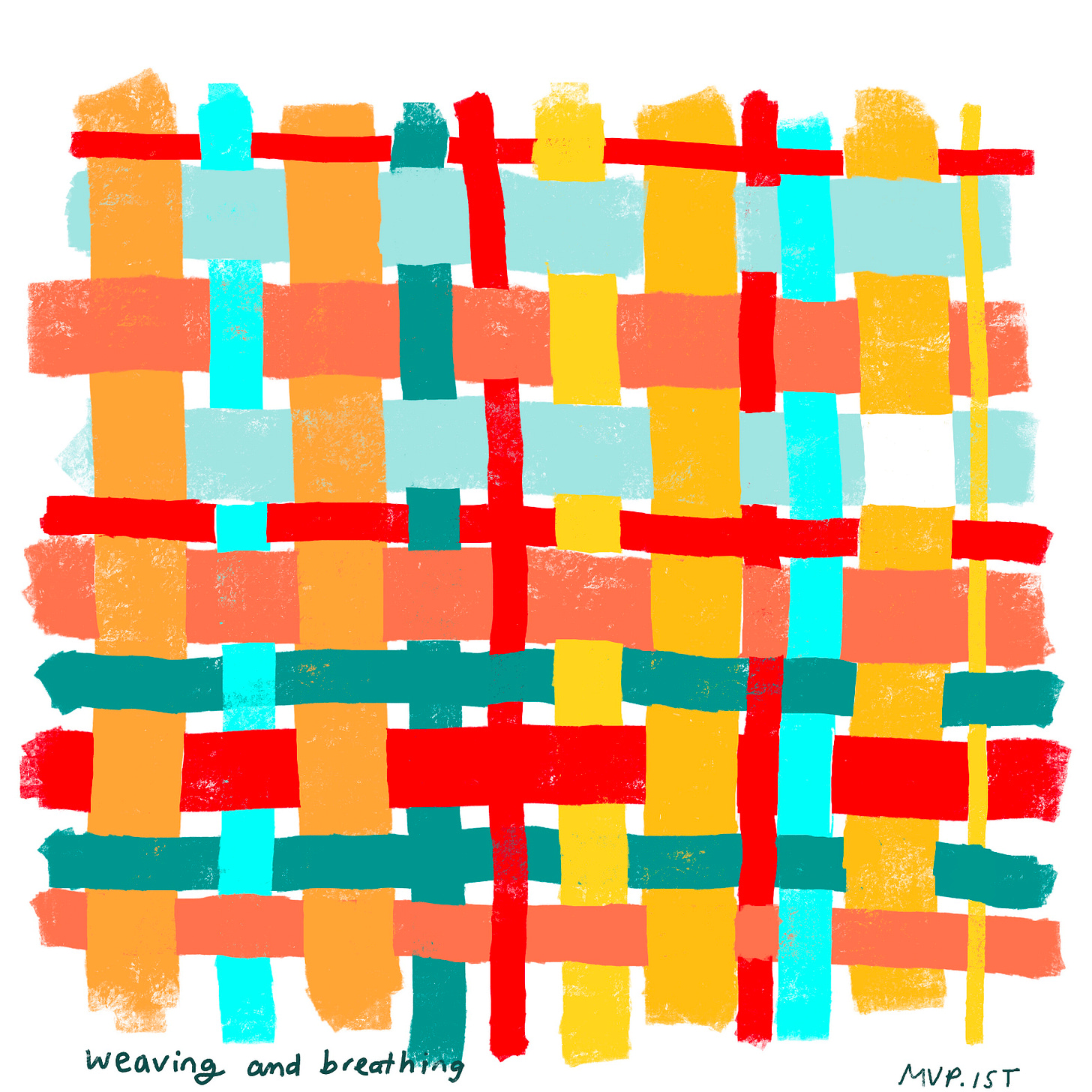

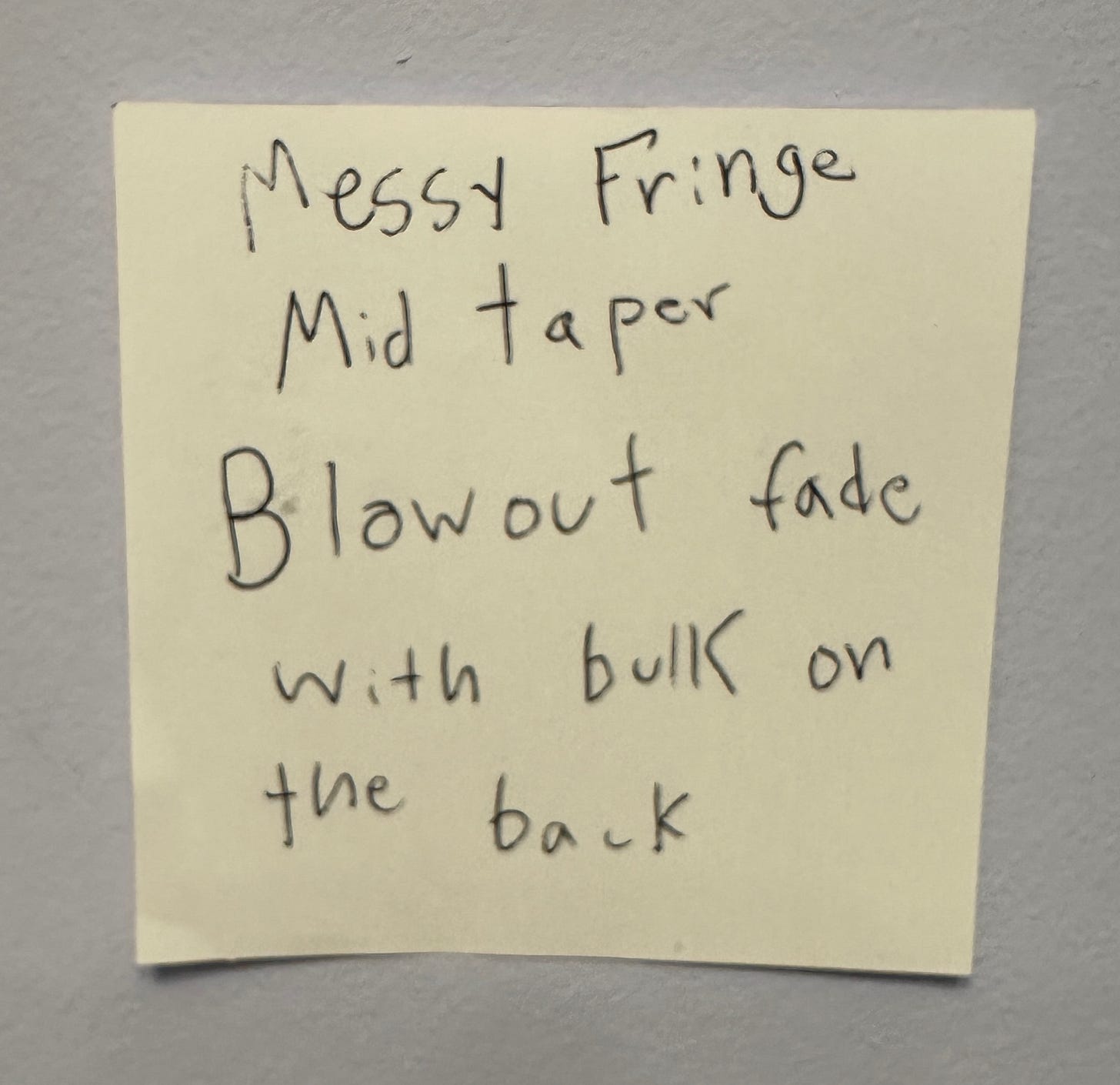
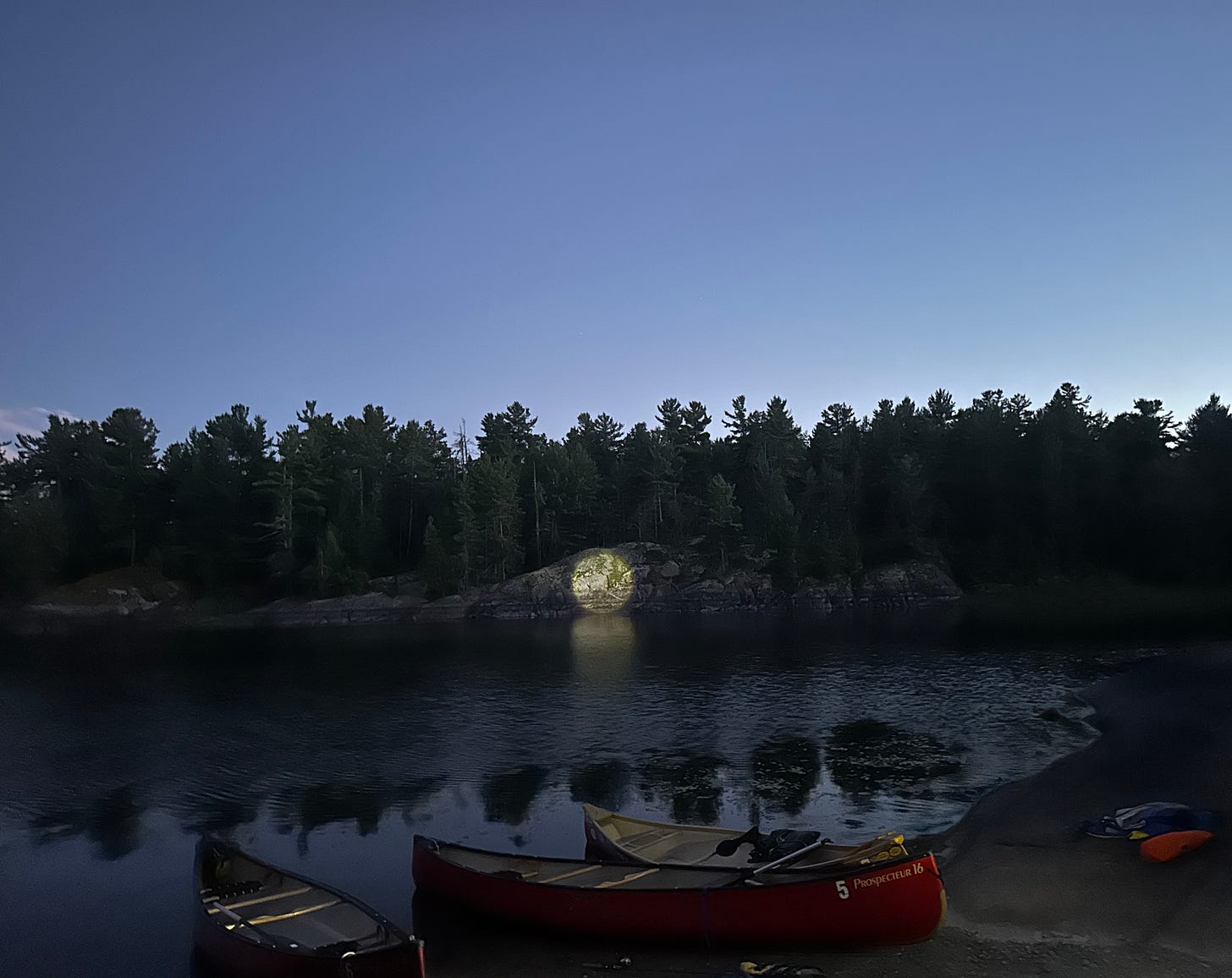
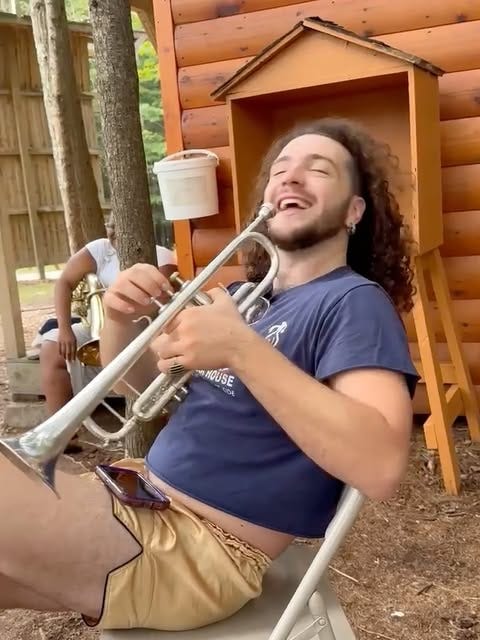
I agree with your opening comments about The Power of Art versus THE POWER OF ART. Art, in my opinion, evokes emotion but rarely evokes action. Art reflects what is happening or what has happened. Making art might result in action. Propaganda art hopes to result in action.
It was great to have you at camp!